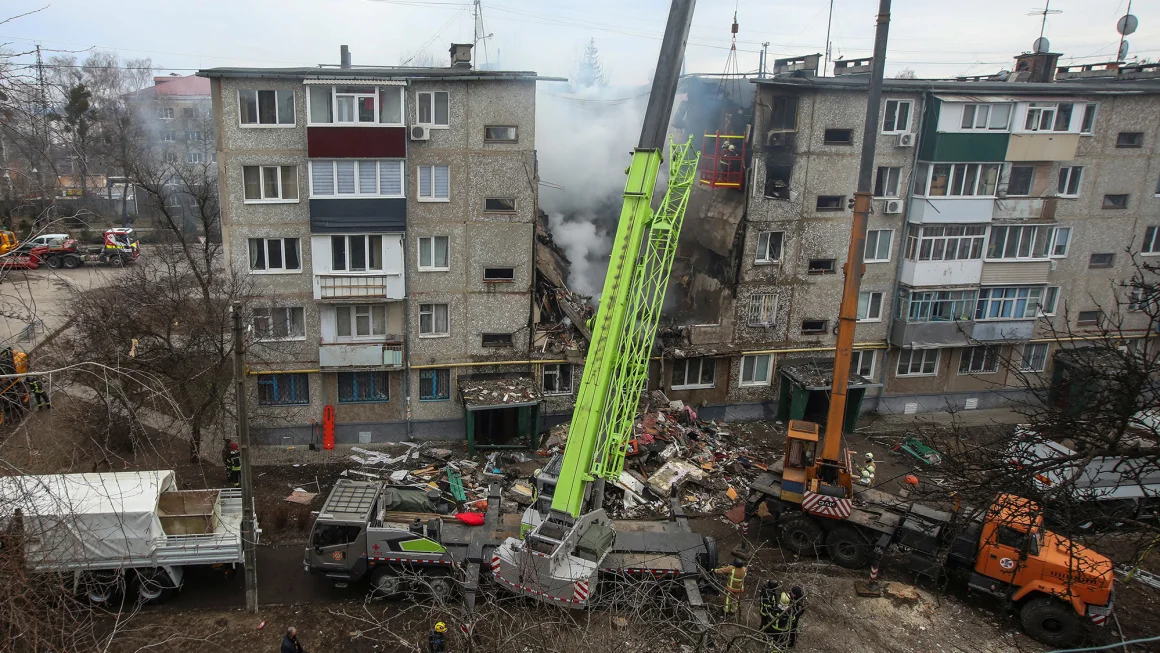As the war machine of Russia continues to exert its full force on the border villages of Ukraine, the specter of a proposed “sanitary zone” by President Vladimir Putin looms, signaling a potentially new phase in the ongoing conflict. Amidst the chaos and destruction, the narratives of evacuation and resilience emerge from the frontlines, painting a vivid picture of the human cost of war.
In the northeastern Sumy region of Ukraine, the village of Luhivka has become emblematic of the increasing violence faced by communities along the border. Police officer Dmytro Piddubnyi captures the urgent evacuation of civilians, including an elderly woman struggling to keep pace, against a backdrop of distant artillery fire. This poignant scene underscores the dire situation in Luhivka, where Russian missiles have damaged essential infrastructure, and the local populace is caught between the advancing threat and the quest for safety.
The response from Ukraine has been robust, with military efforts to engage Russian forces across the border intensifying. Meanwhile, Vladimir Putin’s mention of a “sanitary zone” within Ukraine following his victory in a discredited election adds a new dimension to the strategic landscape, hinting at further escalation and the potential for broader territorial ambitions.
The personal stories of those affected are harrowing. Olha Mykhailivna, from the village of Ryzhivka, recounts her community’s relentless bombardment, leading to a desperate escape with her husband and their dog, leaving behind a lifetime of memories and the livelihood embodied in their cattle. Similarly, Iryna Mishchenko shares the tragic tale of her grandmother’s ordeal in Popivka, a village now largely in ruins, illustrating the profound psychological and physical toll extracted by the conflict.
The Ukrainian leadership, including President Volodymyr Zelensky, has condemned the destructive tactics employed by Russian forces aimed at decimating border villages. Conversely, Ukraine has not shied away from taking the fight to Russian territory, with volunteer legions launching their strikes, contributing to a cycle of attack and retaliation that has seen civilian areas on both sides of the border suffer.
Putin’s floated concept of a “sanitary zone” is met with skepticism from analysts, who question its feasibility and its implicit admission of the challenges Russia faces in achieving its objectives through military means alone. The proposal indicates a stalemate, with no clear path to resolution, as both sides continue to endure the devastating impacts of prolonged conflict.
The ongoing strife at Ukraine’s border underscores a broader tragedy: the displacement of communities, the fragmentation of lives, and the indelible scars left by war. As the international community watches, the enduring spirit of those caught in the crossfire reminds us of the resilience of the human spirit, even in the face of overwhelming adversity.







